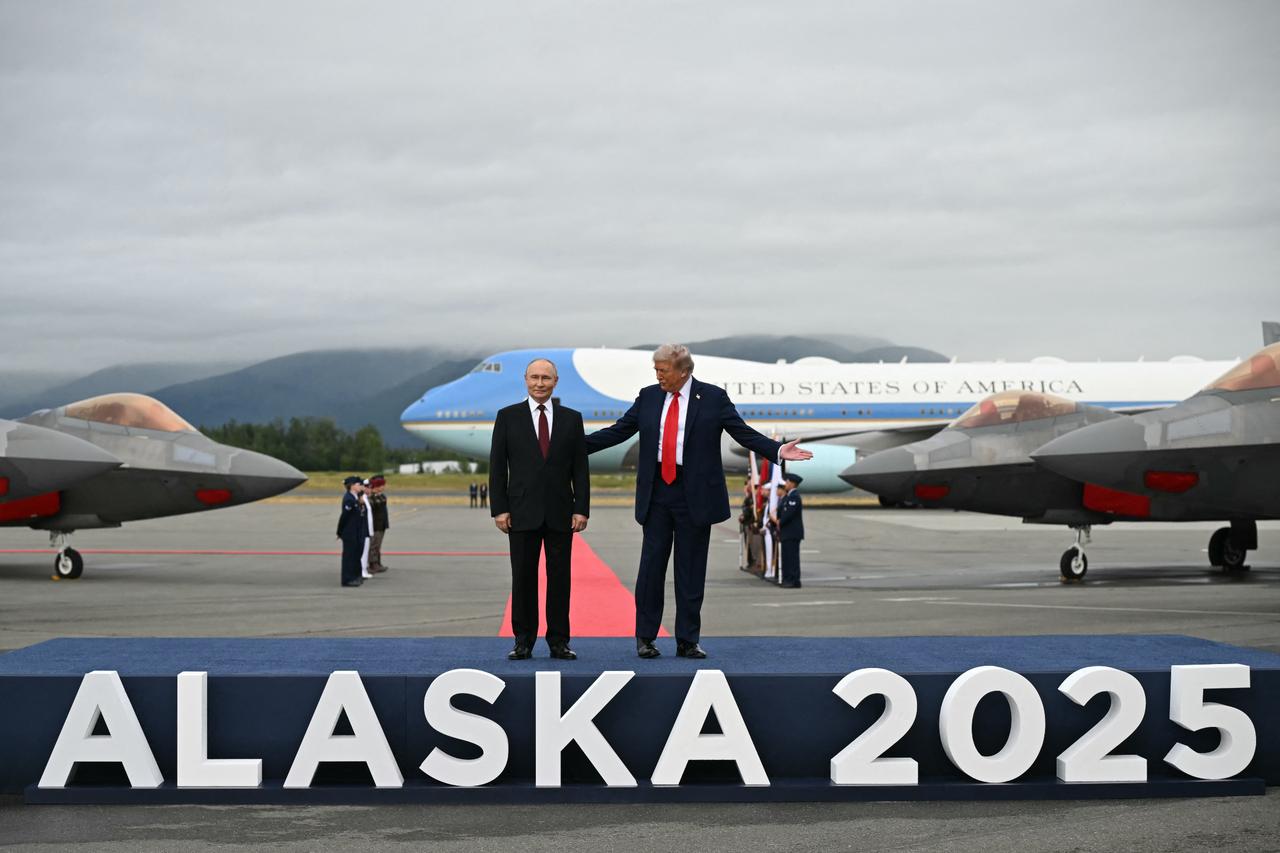
U.S. President Donald Trump and Russian President Vladimir Putin are meeting today in Anchorage, Alaska, for critical talks aimed at ending the war in Ukraine. The summit, taking place at Joint Base Elmendorf-Richardson at 3:30 p.m. ET, marks the first face-to-face meeting between the two leaders since Russia's invasion of Ukraine began nearly three years ago.
Trump has stated his primary objective is "getting Putin to the table" rather than brokering a specific deal for Ukraine. The president has suggested any resolution will likely involve territorial concessions between Russia and Ukraine, saying "there'll be some swapping of territories." Ukrainian President Volodymyr Zelenskyy is not attending but has expressed support for a potential trilateral meeting if the bilateral talks prove successful.
The meeting required extraordinary diplomatic measures, including a U.S. Treasury sanctions exemption for the Russian delegation and careful routing to avoid European airspace where Putin faces an International Criminal Court arrest warrant for alleged war crimes.
U.S. President Donald Trump and Russian President Vladimir Putin have been in discussions with their respective delegations for more than an hour, surpassing initial expectations for what many anticipated could be a brief encounter. The extended duration is particularly significant given Trump's previous statements about quickly assessing Putin's commitment to peace negotiations.
Earlier this week, Trump told reporters he would know "within a couple of minutes" if Putin was genuinely interested in pursuing peace, and warned he might abruptly end the talks if they proved unproductive. "I may leave and say, 'good luck,' and that'll be the end. I may say this is not going to be settled," Trump said before the summit.
The fact that discussions have continued well beyond Trump's stated timeline suggests the leaders may be finding substantive ground for negotiation, or at minimum that Putin has demonstrated enough seriousness to keep the American president engaged. The ongoing talks indicate neither leader has chosen to walk away from what both sides have described as a critical opportunity to address the Ukraine conflict.
U.S. President Donald Trump and Russian President Vladimir Putin have met on the tarmac at Joint Base Elmendorf-Richardson, marking the beginning of their highly anticipated summit.
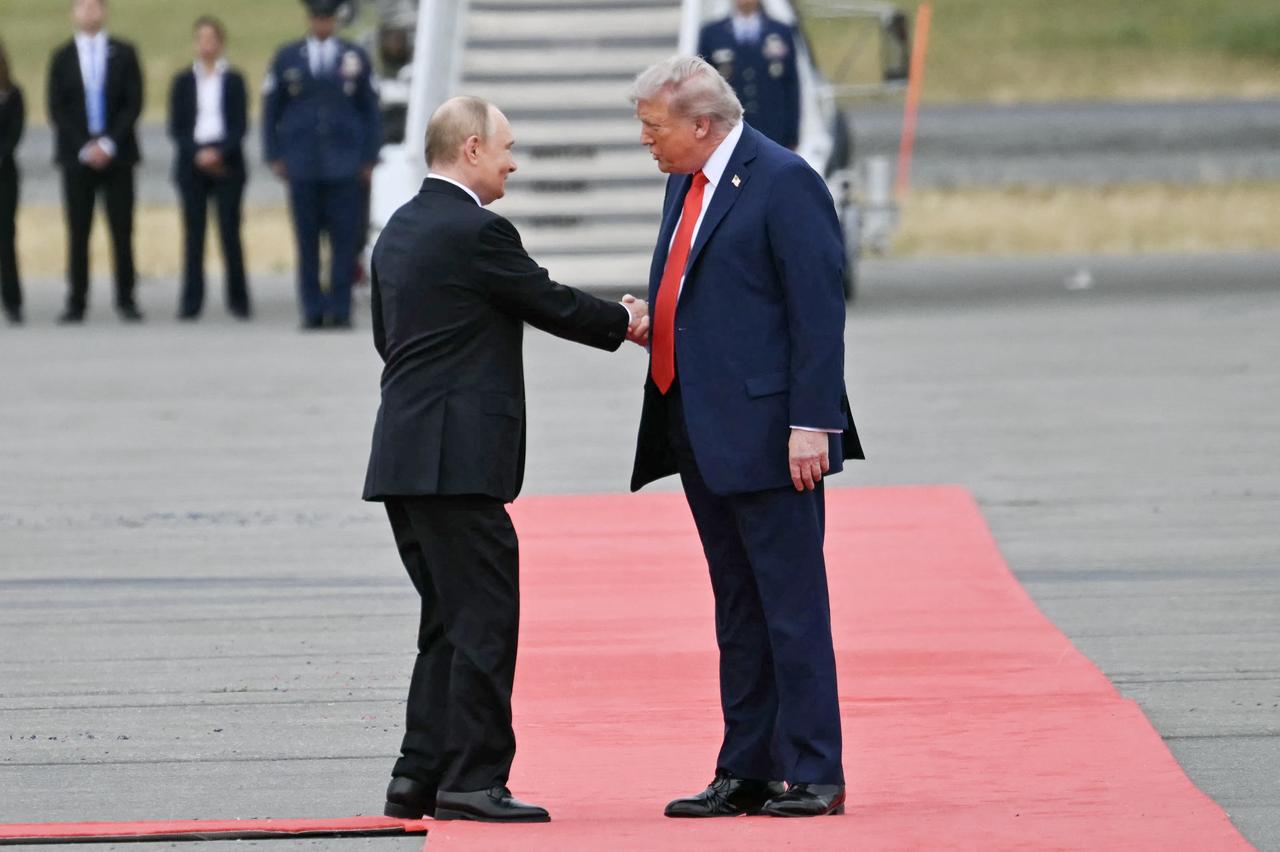
Standing on the red carpet prepared for the occasion, Trump greeted his Russian counterpart with a handshake that lasted for several seconds as the two leaders exchanged initial greetings.
The leaders then walked down the red carpet together while smiling and talking, with the dramatic backdrop of F-22 Raptor fighter jets and Alaska's cloud-covered mountains providing the setting for this historic moment.
The cordial initial interaction suggests both presidents are approaching the talks with diplomatic courtesy despite the high stakes surrounding the Ukraine war negotiations.
The brief public greeting ceremony has now concluded, with both leaders expected to proceed to the formal meeting venue where they will begin discussions aimed at finding a path toward ending the conflict that has reshaped global geopolitics over the past three years.
Air Force One has touched down in Anchorage, Alaska, carrying President Donald Trump shortly after Russian President Vladimir Putin's aircraft arrived at the same military base. The stage is now set for the highly anticipated summit between the two leaders, with both presidents expected to meet within minutes on the red carpet ceremony prepared at Joint Base Elmendorf-Richardson.
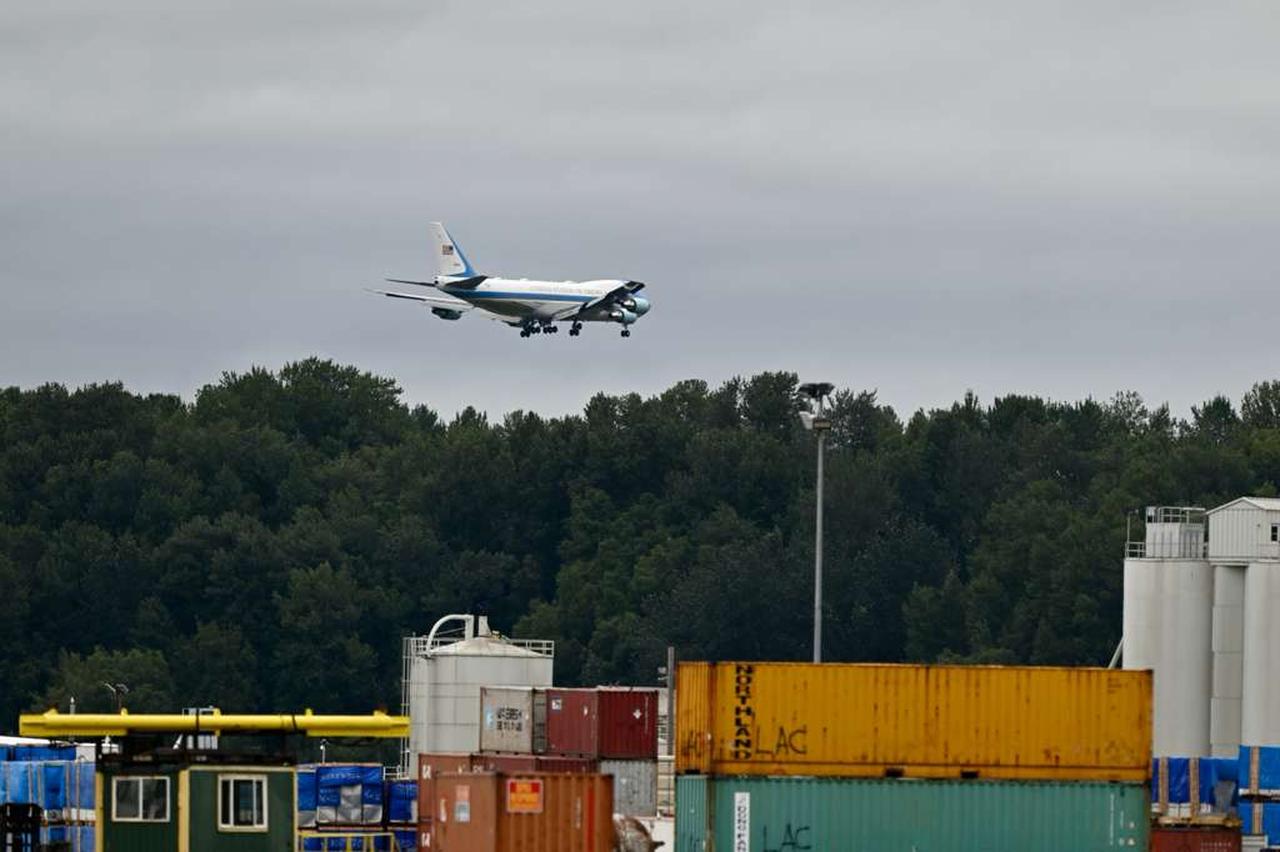
The White House has confirmed that Trump will not meet Putin alone, instead opting for a three-on-three format with the president joined by Secretary of State Marco Rubio and Special Envoy Steve Witkoff. This represents a shift from earlier expectations of a one-on-one meeting and suggests a more structured approach to the critical negotiations.
Following the initial talks, a post-meeting lunch will expand to include additional high-ranking American officials: Treasury Secretary Scott Bessent, Commerce Secretary Howard Lutnick, Defense Secretary Pete Hegseth, and Trump's chief of staff Susie Wiles. The broader delegation indicates the administration's intention to involve multiple departments in any potential agreements or discussions that emerge from the summit.
Russian President Vladimir Putin is set to receive a formal red carpet welcome upon his arrival in Anchorage, a reception that has drawn sharp criticism from European officials. "Given the horrors Putin's forces are inflicting on Ukraine daily, that kind of treatment will be hard to stomach," a European diplomat told CNN as the summit preparations were finalized.
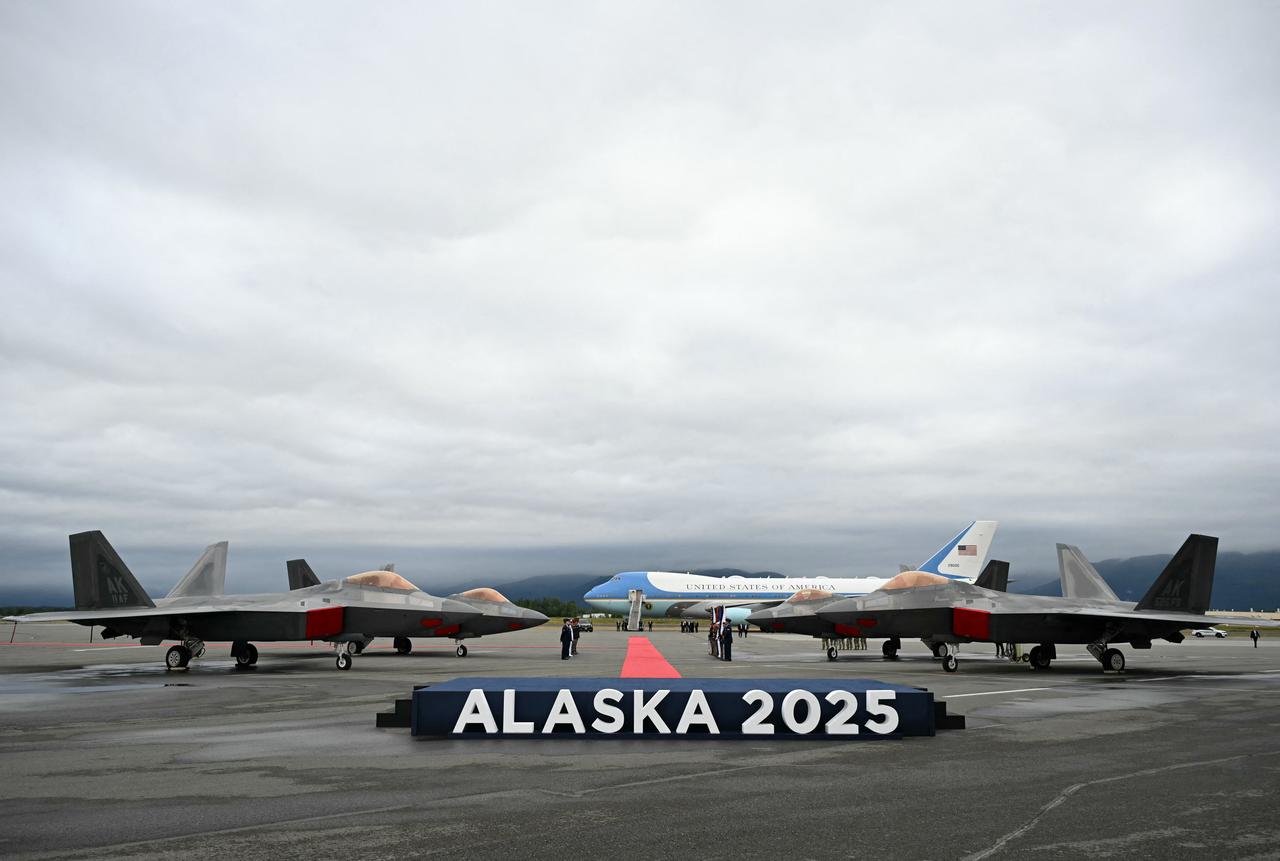
The stage has been elaborately set on the tarmac at Joint Base Elmendorf-Richardson, with an L-shaped red carpet laid out for both leaders to walk down to a platform labeled "ALASKA 2025." The dramatic backdrop includes cloud-covered mountains and four F-22 Raptor fighter jets lined up alongside the carpet, creating a striking visual for the historic meeting.
The choice to display F-22 Raptors carries particular symbolism, as these aircraft squadrons based at Elmendorf regularly intercept Russian aircraft that venture into American airspace. The juxtaposition of welcoming Putin with the very planes used to monitor Russian military activity underscores the complex dynamics of the summit, where diplomatic protocol meets the reality of ongoing tensions between the two nations.
Russian President Vladimir Putin has arrived in Anchorage, Alaska, aboard flight RSD539, a special Russian government aircraft. The plane, identified as a Tupolev Tu-214PU with registration RA-64531, touched down at Joint Base Elmendorf-Richardson after departing from Magadan, Russia, approximately three and a half hours earlier.
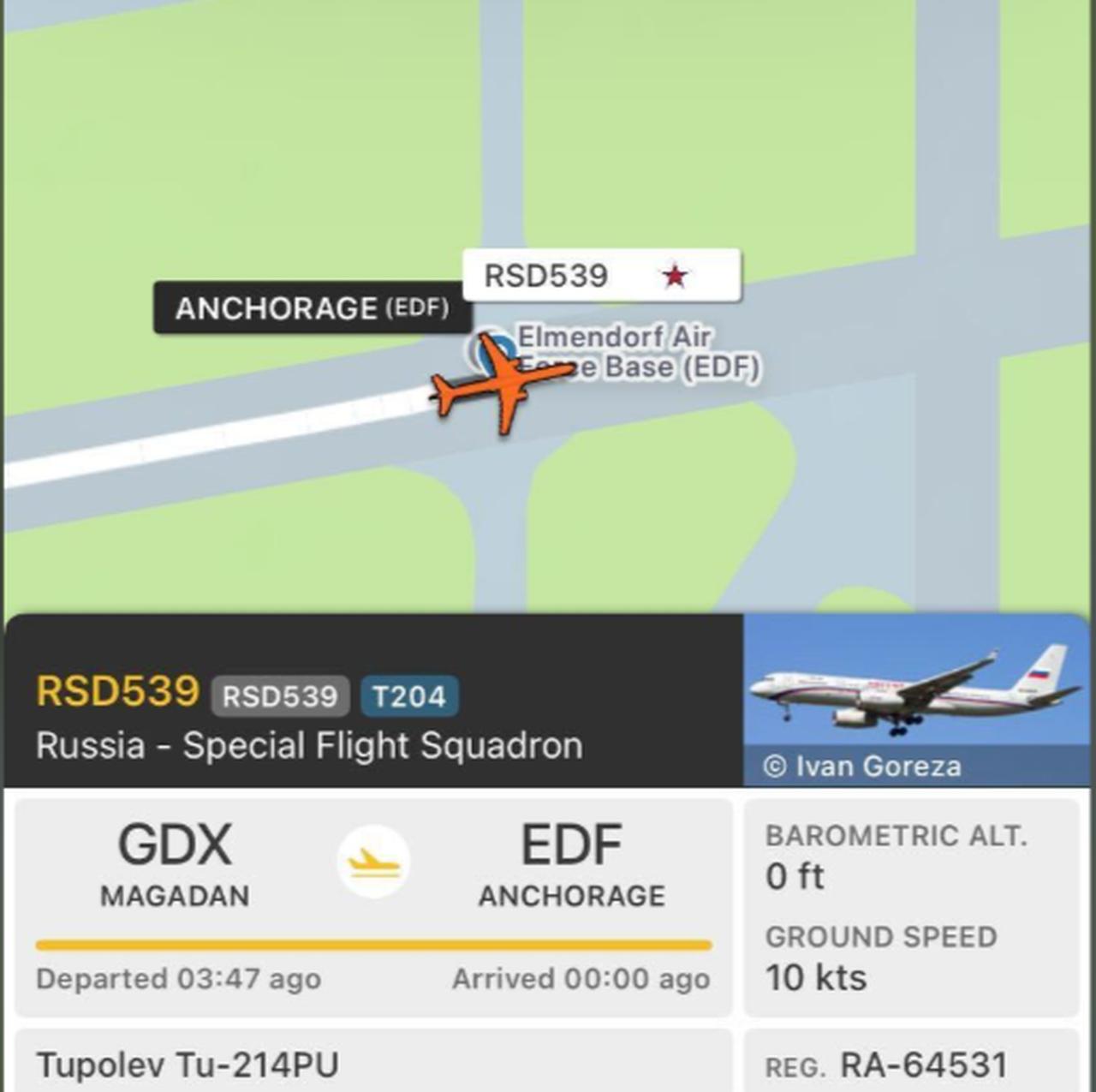
U.S. President Trump has offered to join European forces in providing security guarantees to Ukraine in the event of a peace settlement with Russia, according to Lord Mandelson, the UK ambassador to Washington.
Speaking at the Chicago Council on Global Affairs, Mandelson disclosed that British and European forces would be present on the ground alongside Ukraine to intervene if Russia ever broke the terms of a peace agreement.
Mandelson emphasized that the Putin-Trump summit is not an exercise "where the Ukrainians have to beg for mercy and give up anything in order to buy an unreasonable peace." Instead, he said the aim is to achieve "a rudimentary ceasefire" that would lead to trilateral talks between Ukraine, Russia and the United States. The ambassador argued that "Russia is not going to win this war" and that "if it's going to win this war it would have done so years ago."
The UK diplomat outlined that once an agreement is reached, Britain and European allies would establish monitoring systems and ground arrangements that would trigger intervention if Russia violated the peace terms. Mandelson noted that Trump "does not want to be associated with failure" and admires Ukrainian bravery, while acknowledging that any settlement would require Ukrainian armed forces to be "rebuilt, reequipped, resupplied, retrained" to deal with continuing threats from Russia.
With less than hours before his expected arrival in Anchorage, President Donald Trump escalated pressure for immediate results from his upcoming meeting with Vladimir Putin. Speaking to reporters aboard Air Force One, Trump said he wants to see a ceasefire between Russia and Ukraine "rapidly," adding, "I don't know if it's going to be today, but I'm not going to be happy if it's not today."
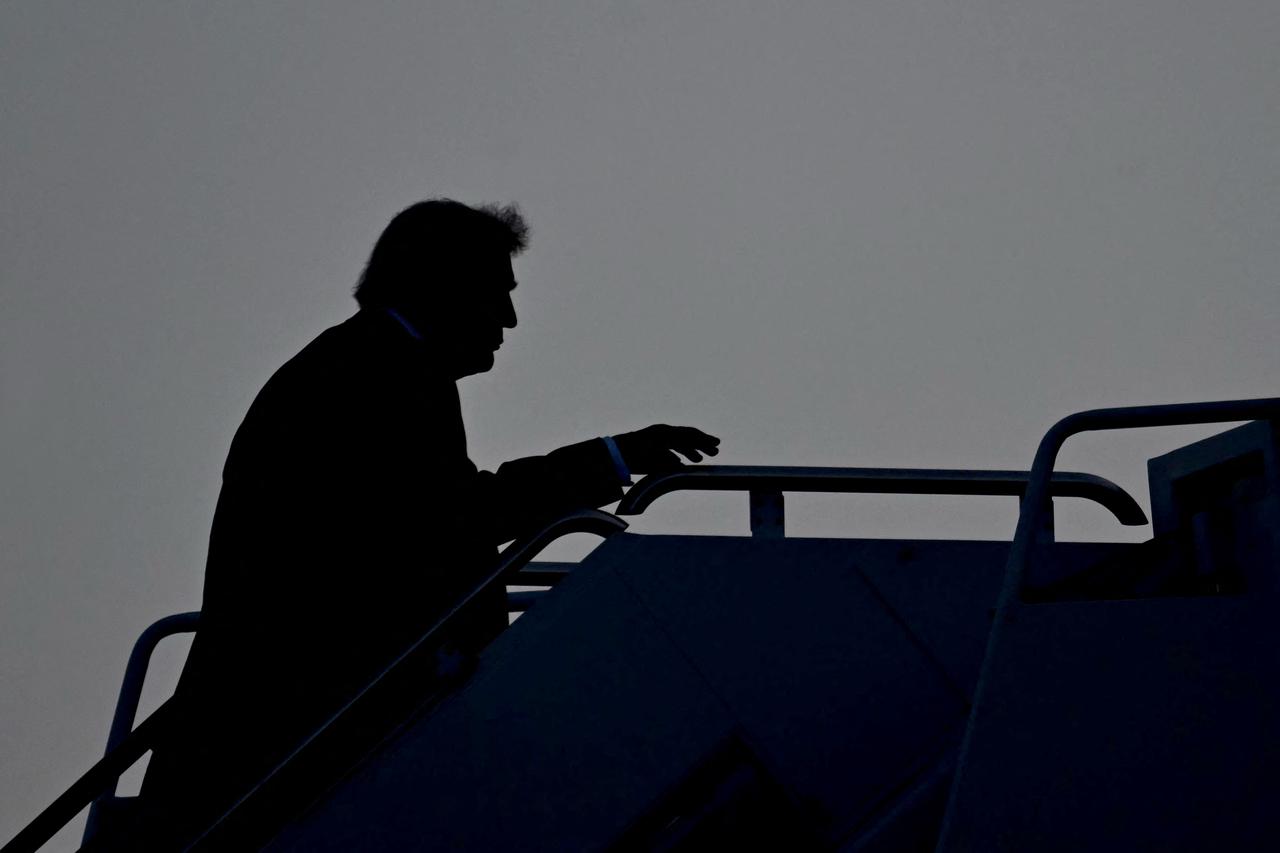
Trump emphasized that the negotiations are not driven by European pressure, stating "This is not to do with Europe. Europe's not telling me what to do, but they're going to be involved in the process, obviously, as well as Zelenskyy." The president also defended U.S. military aid to Ukraine, claiming the country is "making money" by receiving "big, beautiful cheques" from NATO for supplying weapons, though he quickly added his primary motivation is humanitarian: "I don't care about that. I'm in this to stop the killing."
The comments suggest Trump is entering the high-stakes summit with ambitious expectations for immediate progress, setting a tone that could either pressure Putin into concessions or create unrealistic timelines for what many observers consider an extremely complex diplomatic challenge.